gdc2017
Latest
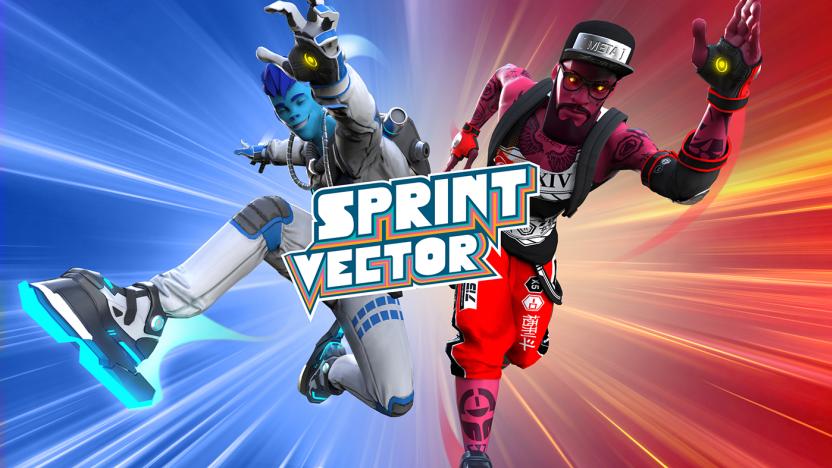
Survios' 'Sprint Vector' lets you run in VR without getting sick
Locomotion and speed are two of the hardest problems to solve in virtual reality -- get either one wrong, and players are going to get sick. That's why so many VR experiences use teleportation as their primary movement mechanic. It's a safe, slow way to let players explore large game worlds. It's become a bit of a standard, but you won't find it anywhere in Survios' next title. Sprint Vector is a fast-paced racing game that lets players sprint through obstacle courses at superhuman speeds. The game balks at the idea of the safe, slow VR environment, but somehow avoids inflicting simulator sickness on the player. The key: making hands the new feet.

Indie devs can publish on Xbox without Microsoft's help
It wasn't too long ago that Microsoft released an update that turned every Xbox One into a software development kit. Now, hobbyist developers will have a platform for publishing their wares on the console. It's called the Xbox Live Creator's Program.

LG's SteamVR headset is a bulky yet promising HTC Vive alternative
For the past year, the only two contenders in the PC virtual-reality space were the Oculus Rift and the HTC Vive. Not anymore. A few days ago, LG announced its own PC-driven VR headset, which was made in collaboration with Valve. That means that there are now two headsets -- the Vive and the LG -- that make use of Valve's SteamVR tracking technology. I took a closer look at a prototype of the LG headset here at GDC 2017, and though it could certainly use some improvement, it has a lot of potential.

Watch the 2017 Game Developers Choice Awards right here!
They may not be of the same magnitude as the Oscars, but the Game Developers Choice Awards and Independent Games Festival Awards are happening tonight in San Francisco. The events are going to be hosted by Double Fine CEO Tim Schaefer and Tacoma Games' Nina Freeman, respectively, in an evening where the best AAA and indie developers will be recognized for their work. Will Super Mario Run win the award for Best Mobile/Handheld Game? Tune in to find out at 6:30PM PT/9:30PM ET; there's a livestream below, and you can also go to the GDC's Twitch and YouTube pages.

Playing with shiny, mysterious blocks in 'QUBE 2'
The original QUBE came out in 2012, making a name for itself as a clever spatial-puzzle game. Nearly five years later, the developers at Toxic Games have unveiled QUBE 2, a sequel that takes the best aspects of the original and throws them all in a beautiful new 3D environment.

Microsoft plans to bring mixed reality to the Xbox in 2018
Last year, Microsoft revealed it would open up its Windows Holographic Platform to other hardware manufacturers, and at CES, we got a sneak peek at a few different Windows VR headsets. At GDC this week, Microsoft revealed yet more plans for its mixed-reality platform. While its headsets are strictly for the PC right now, they will soon be coming to the Xbox -- as well as Microsoft's Project Scorpio console -- in 2018.

The Oculus Rift and Touch bundle is now $200 cheaper
We're just a few weeks away from the one-year anniversary of Oculus shipping the Rift to consumers, so now would be a good time for the company to drop some news. And here it is. Starting today, Oculus will begin selling Rift and Touch bundles on its store for $598 -- about a $200 price cut. On their own, the Rift headset is now $499 while the Touch controllers are $99, meaning that each saw a price drop of $100. Oh, and the cost of an extra Oculus sensor is now $59, which is $20 less than before.

Epic Games shows the potential of high-end augmented reality
Epic Games has a reputation for bringing bizarre demos to its GDC keynotes. The company loves to show developers what Unreal Engine can do, not just in gaming but other genres as well. As such, Epic Games has now demoed "Project Raven," which makes it possible for content creators to blend real-time visual effects with live-action shots. The technology, created in partnership with Chevrolet and video production company The Mill, was designed to convey the promise of high-end augmented reality.
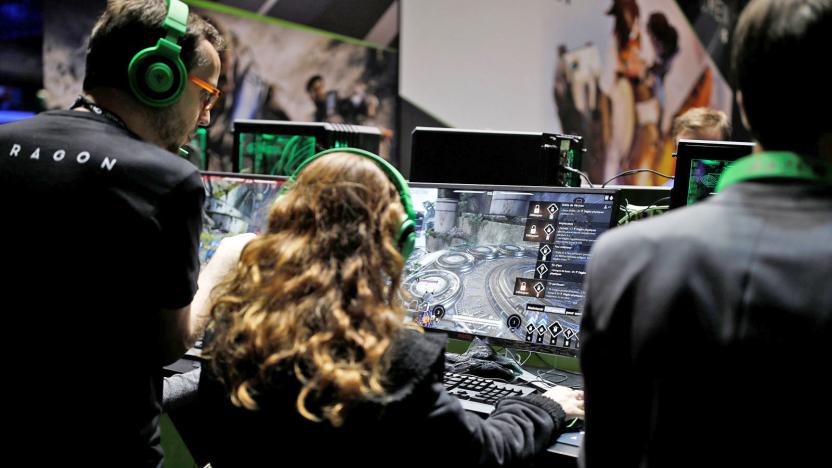
Watch Epic Games' GDC 2017 keynote right here!
Unity already had its moment at GDC 2017, and now it's Epic Games' turn to take the stage in San Francisco. The company's "State of Unreal" keynote will be presented by founder Tim Sweeney, who is expected to share new developments around the Unreal game engine. We'll probably also hear about Epic's latest efforts in virtual reality and get some captivating demos from its partners, like the Hellblade real-time motion capture from last year. You can watch the event live at 9:30AM PT/12:30PM ET -- we embedded a video of the stream below for your convenience.
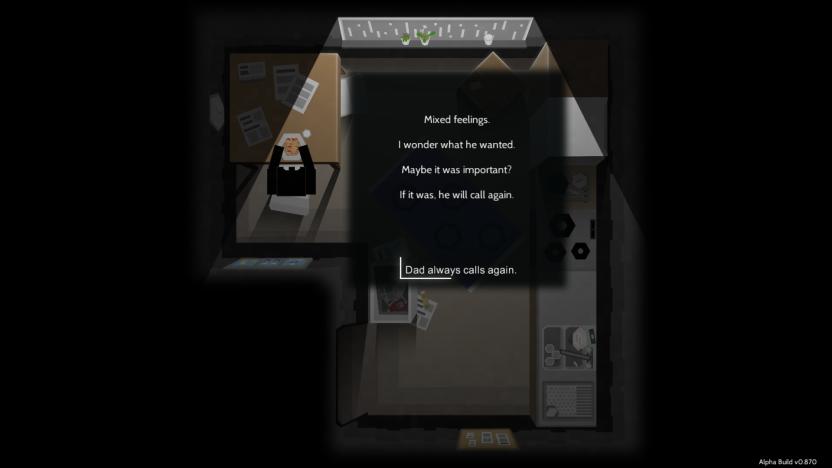
'Please Knock on My Door' is a digital life of depression
At first, depression doesn't sound like the most thrilling topic to explore in a video game. It's antithetical to the boisterous, action-packed, neon-tinted tone that generally dominates the industry -- but that doesn't mean depression doesn't make for a compelling game. After all, video games are immersive experiences that can open up new worlds to people across the globe, inviting players to feel what life is like in another body, on another planet, in another universe. In another mind.

NVIDIA reveals its $700 top-of-the-line GTX 1080 Ti
Last year we called NVIDIA's GeForce GTX 1080 "the upgrade you've been waiting for," and now PC gamers have another high-end graphics card to drool over. At GDC 2017, CEO Jen-Hsun Huang presented its successor, the GTX 1080 Ti, which promises "35 percent more performance," packs 11GB of GDDR5X memory and will go on sale March 10th for $700. In fact, NVIDIA even claims this new card is faster than its $1,200 Titan X that launched late last year for professionals. At the same time, the company announced the 1080 is getting a price cut and will now start at $500.
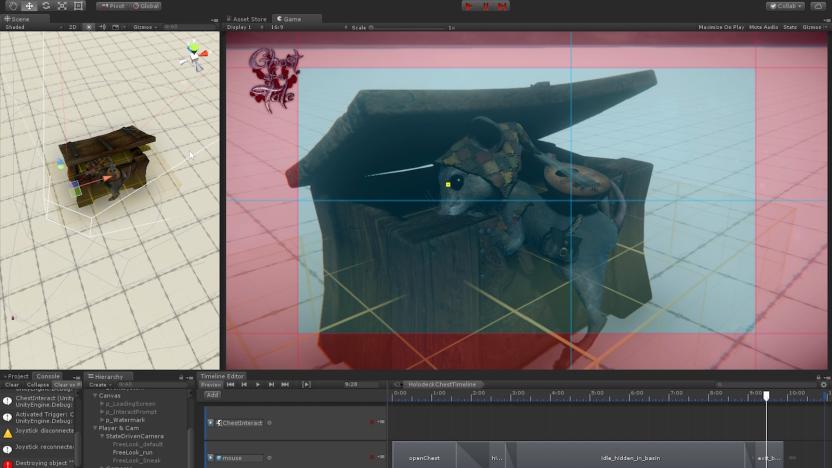
Unity's '2017' game engine will focus on artists and designers
Unity's keynote at this year's GDC was all about the future of its game engine. The company has outlined plans for the next major version of its platform, Unity 2017, which is being designed with creators in mind. Unity says one of the main goals is to improve team productivity and collaboration features for non-programmers, particularly those who are artists and designers -- someone like a cinematic animator, for example. Developers will be able to sign up for a beta in April, marking the end of the Unity 5 cycle that began in 2014.

Google now lets developers offer sales on Android apps
During Google's Developer Day at GDC 2017 today, the company introduced a few new features that will benefit both developers and consumers on the Google Play Store. The one customers will notice most starting today is strikethrough pricing, which makes it more obvious when apps are being sold at a reduced rate.

The first games published by Humble Bundle are super clever
Humble Bundle has ballooned from a small company offering "pay what you want," charity-focused video game sales to a major player in digital distribution. Humble is taking on Steam's marketplace with the Humble Store, and it's attracting subscriptions with Humble Monthly, a program that delivers a curated selection of games to your digital doorstep 12 times a year. This month, Humble announced it would start funding and publishing games, starting with seven titles across a range of genres. At GDC 2017, we got our hands on four of them: Staxel, HackyZack, Ikenfell and Keyboard Sports. Though each game is vastly different and built for disparate audiences, they're all refreshingly creative in their own way.

Vive Studios' 'VR Sports' is exactly what it sounds like
The unmitigated phenomenon that was the Nintendo Wii had an everlasting effect on any medium with motion controllers: If you have hardware that can track hand movements, it needs to have its own "Wii Sports" game. Enter Vive Studios' latest virtual-reality game, VR Sports -- a lighthearted but surprisingly realistic-feeling ping-pong and tennis simulator. On March 15th, the game kicks off Vive Studios' spring lineup of VR games, which also includes a WWII defense shooter and a port of Sixaxis' virtual-reality CAD program.

Ubisoft is building a game in the 'Avatar' universe
Alongside this week's Game Developer Conference in San Francisco, Ubisoft announced its next AAA-project: a new experience set on the moon Pandora from James Cameron's Avatar universe. The game is being developed by Massive Entertainment, the Ubisoft studio behind last year's fast-selling The Division.
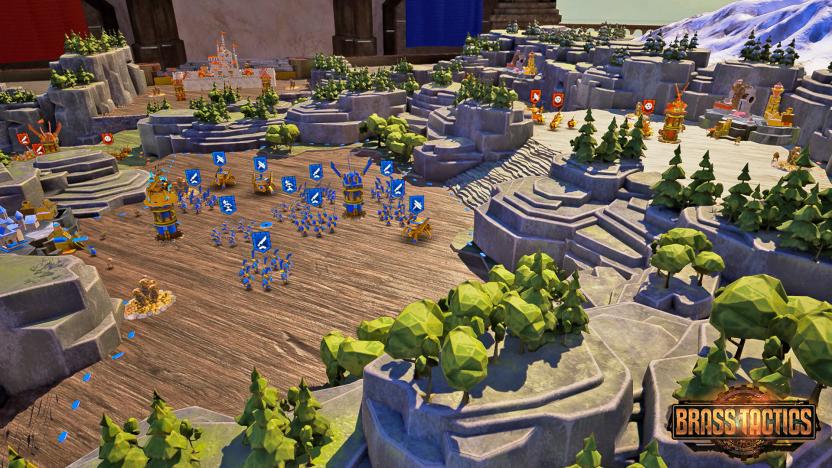
'Brass Tactics' is a VR RTS that puts you in a clockwork battlefield
Real-time strategy and VR don't seem like they would go together. After all, the key attraction to virtual reality is feeling like you're in someone else's shoes in a faraway land of make believe. The top-down view of typical RTS games doesn't quite lend itself to that level of immersion. Or does it? After a few minutes playing with Hidden Path Entertainment's Brass Tactics at an Oculus demo event, I found myself so engrossed in a cutthroat tabletop battle that I almost forgot I had a headset on at all. Now, there have been other real-time strategy games in VR -- Tactera and AirMech come to mind -- but Brass Tactics has a decidedly more medieval feel. The developers describe it as a "clockwork battlefield," as your buildings and minions appear to be built out of parts of a clock, gears and all. Yet, the design of Brass Tactics reminds me very much of tabletop war games -- living soldiers take the place of miniature figures while 3D-modeled landscapes replace plastic terrain. Gameplay itself should be pretty familiar to anyone who's played a real-time strategy. You start out with just your warriors and your archers, but you can upgrade them over time. To attack, you simply direct your battalion to a spot on the table with the Touch controllers. As you capture more regions, you can build more towers to create even more units like a flying squad or cavalry tanks. If you like, you can also use catapults to launch fire balls at your opponent. With Brass Tactics, you can also actually move "through" the landscape like an omniscient god, so you can get up close and get a better idea of how to manage your resources. You also need to move from region to region in order to build and maintain towers. It was pretty cool to be directly in the middle of everything, sending off troop after troop to capture or defend regions. I felt a little bit like an orchestra conductor, except instead of cueing violins, I was deploying archers. As engrossing as it was though, I'll admit it can be a little chaotic. It seems like it would be easier to hotkey or mouse your way through a battlefield than it is to figure out where to flail your arms. That said, it's probably a matter of getting used to it, and I can see improving my skills over time. If you're an RTS fan who also likes a bit of tabletop gaming from time to time and you happen to have a Rift, then definitely take a look at Brass Tactics when it comes to the Oculus Store later this year. Click here to catch up on the latest news from GDC 2017!
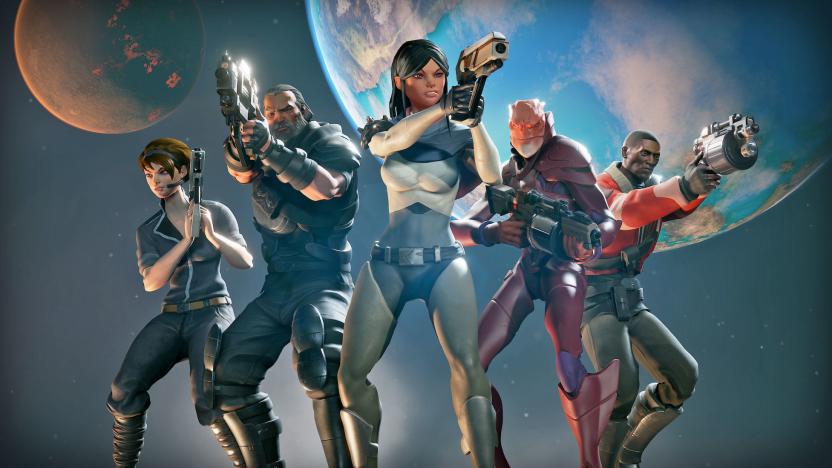
Oculus shows off upcoming VR titles at GDC 2017
It's the start of the 2017 Game Developers Conference and, as you might expect, it's an event where VR is likely to take center stage. Kicking it all off is Oculus, which not only announced a new Gear VR plus a new controller this weekend, it also showed off a slew of new games at a special pre-GDC event. From rocking out on a virtual stage to pitting armies against each other in a tabletop strategy game, there's no shortage of variety in Oculus' upcoming library. Check out some of these titles in our video above.

Games like 'Augmented Empire' are why Gear VR needs a controller
If you've ever used a Samsung Gear VR before, you've probably found yourself awkwardly tapping the side of the headset to issue a command, or fumbling with its four-way touchpad to make a selection in a menu. This inelegant, embedded touch control is a necessary evil -- a compromise that allows the headset to be a self-contained VR experience free of the complicated peripherals and setup required of the Oculus Rift and HTC Vive. I struggled with its faults at Oculus' GDC demo day as I uncomfortably tapped my way through a battle in Augmented Empire. Holding my arm to the side of the headset, constantly rapping the side of it to direct characters and attack enemies, I thought that there had to be a better way to control a tactical RPG in virtual reality. Then somebody told me Samsung had announced a new Gear VR earlier that morning. One with a motion controller. That sounds so much better.
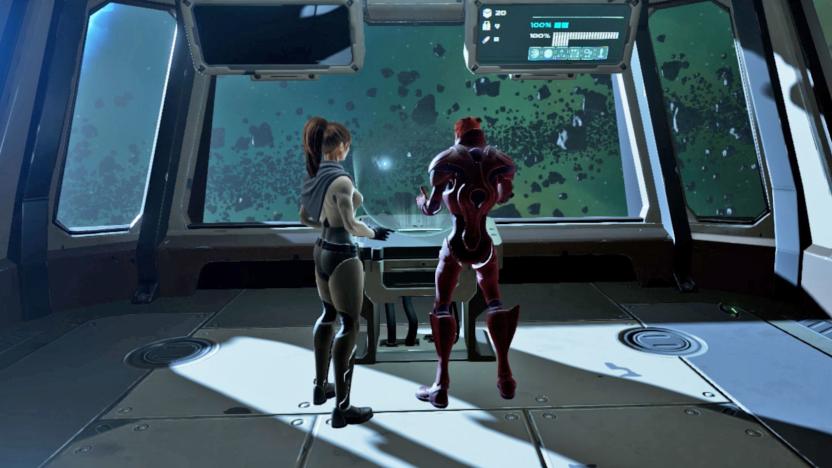
'From Other Suns' lets players move in VR however they want
When I boot up a new VR game for the first time, the same question always hangs in my mind. "So," I think, "how do you teleport in this game?" It's become a standard in virtual reality, the go-to movement system that lets players explore the digital realm without contracting simulator sickness. It works, but not perfectly. Warping from place to place avoids the disparity between vision and physical movement that causes nausea, but teleporting across a tiny walkable distance feels a little weird. From Other Suns doesn't change the basic function of the teleport mechanic but adds a nice twist: It lets you see your character actually walk to the teleport location.






